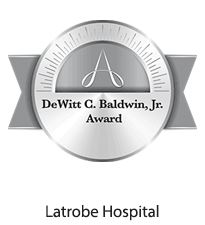
Curriculum
PGY-1
Hospital Medicine: 13 weeks
Night Float: 6 weeks
Obstetrics: 6 weeks
Pediatrics: 6 weeks
Women’s Health: 4 weeks
Emergency Medicine: 4 weeks
Clinical Pharmacy: 2 weeks
Pediatric Emergency Medicine at CHP: 2 weeks
ICU: 2 weeks
Addiction Medicine: 2 weeks
Orientation: 2 weeks
Holiday: 2 weeks
Pain Management: 1 week
PGY-2
Family Medicine Office: 10 weeks
Elective: 8 weeks
Hospital Medicine: 6 weeks
Pediatrics: 5 weeks
Musculoskeletal Medicine: 4 weeks
Cardiology: 4 weeks
Night Float: 3 weeks
Women’s Health: 2 weeks
Pulmonology: 2 weeks
Neurology: 2 weeks
Dermatology: 2 weeks
General Surgery: 2 weeks
Holiday: 2 weeks
PGY-3
Family Medicine Office: 12 weeks
Elective: 12 weeks
Hospital Medicine: 6 weeks
Pediatrics: 5 weeks
Sports Medicine: 4 weeks
Surgical Selective: 4 weeks
Night Float: 3 weeks
Wound Care: 2 weeks
Orientation: 2 weeks
Holiday: 2 weeks
*In addition to the above block rotations, Outpatient Family Medicine, Outpatient Pediatrics, and Community Medicine occur longitudinally during all three years.
Call Schedule
First, second and third year residents participate in a night float system.
Responsibilities Include:
- Admitting patients to the general medical, telemetry and ICU floors
- Responding to floor calls
- Responding to “Code Blues”
Senior residents function in a teaching and supervisory capacity while managing outside telephone calls from our patient population.
Longitudinal Experiences
- Outpatient Family Medicine: One session per week (PGY-1); two to three sessions per week (PGY-2), and four sessions per week (PGY-3).
- Community Medicine: All three years with an emphasis during PGY-2 and PGY-3 years.
- Geriatrics: All three years with an emphasis during PGY-2 and PGY-3 years.
- Practice Management: All three years with an emphasis during PGY-2 and PGY-3 years.
- Behavioral Medicine: All three years with an emphasis during PGY-2.
- Sports Medicine: All three years with an emphasis during PGY-2.
- Procedures: All three years with an emphasis during PGY-3.
- Outpatient pediatrics: All three years with emphasis on PGY-1 and PGY-2 years.
Ready to Apply?
If you meet the entrance requirements, please submit your information through Electronic Residency Application Service (ERAS). If you have further questions, don’t hesitate to contact us at 1-800-723-2269.
